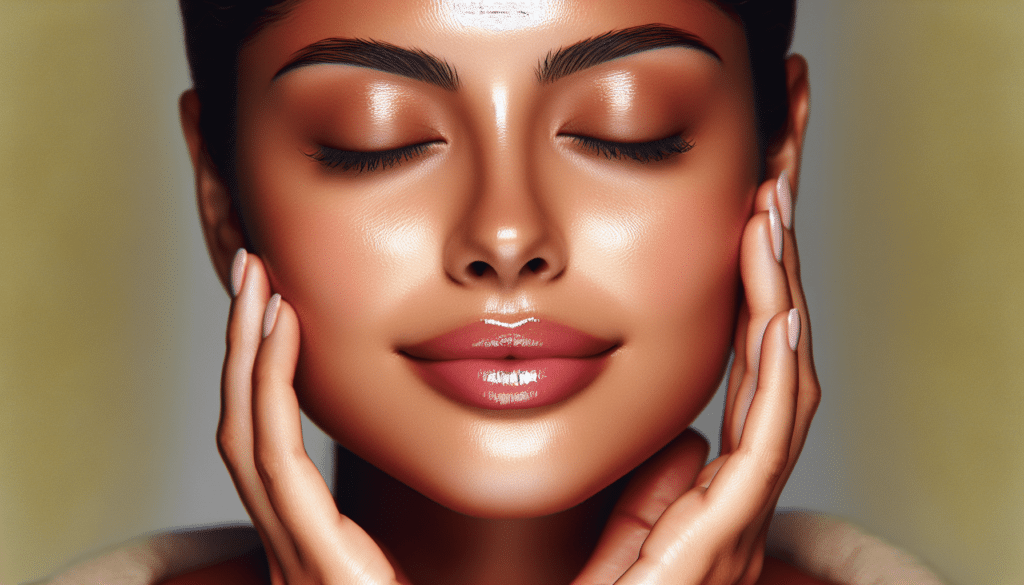How Often Should You Get a Facial for Optimal Results?
Have you ever wondered how often you should get a facial to achieve the best results for your skin? Regular facials can work wonders for your skin by deeply cleansing, exfoliating, and rejuvenating it. But finding the right frequency for your skincare routine can be a bit confusing. In this article, we’ll explore the ideal frequency for getting facials to help you achieve glowing, healthy skin.
The Importance of Regular Facials
Facials are not just a pampering treat; they are an essential part of a good skincare routine. Regular facials can help you maintain healthy and youthful-looking skin by addressing various skin concerns such as acne, dryness, uneven skin tone, and signs of aging.
Factors to Consider
Before deciding on how often you should get a facial, there are a few factors you need to consider. These factors can help you determine the frequency that will work best for your skin type, lifestyle, and budget.
1. Skin Type
Your skin type plays a significant role in how often you should get a facial. If you have oily or acne-prone skin, you may benefit from more frequent facials to control excess oil and prevent breakouts. On the other hand, if you have dry or sensitive skin, you may need less frequent facials to avoid irritation.
2. Skincare Goals
Consider your skincare goals when deciding on the frequency of your facials. If you are targeting specific skin issues such as fine lines, hyperpigmentation, or dullness, more frequent facials may be necessary to achieve your desired results.
3. Lifestyle
Your lifestyle can also impact how often you can fit a facial into your schedule. If you lead a busy life with little time for skincare treatments, you may opt for less frequent facials. However, if you have the luxury of time and enjoy skincare routines, you may choose to get facials more often.
4. Budget
The cost of facials can vary depending on the location, type of treatment, and skincare professional. Consider your budget when deciding on the frequency of your facials. If you are on a tight budget, you may opt for less frequent facials or look for more affordable options.

How Often Should You Get a Facial?
Now that you have considered these factors, let’s explore how often you should get a facial for optimal results. The ideal frequency of facials can vary for each individual, but here are some general guidelines to help you determine the best schedule for your skincare needs.
1. Monthly Facials
For most people, getting a facial once a month is a good starting point for maintaining healthy skin. Monthly facials can help you address various skin concerns and keep your skin looking fresh and radiant. Consider monthly facials if you have normal to combination skin and want to prevent future skin issues.
2. Bi-Monthly Facials
If you have oily or acne-prone skin, bi-monthly facials (every two weeks) may be more suitable for controlling excess oil production and preventing breakouts. Bi-monthly facials can help keep your skin clean, clear, and balanced.
3. Seasonal Facials
Seasonal facials are recommended to address changes in your skin due to weather conditions. Consider getting a facial at the beginning of each season (spring, summer, fall, winter) to help your skin transition and adapt to the new climate. Seasonal facials can help hydrate, exfoliate, and protect your skin from seasonal challenges.
4. Special Occasion Facials
If you have a special event coming up, such as a wedding, birthday, or holiday party, you may opt for a series of facials leading up to the event. Special occasion facials can give your skin an extra boost of radiance and ensure that you look your best for the occasion.
DIY Facial Maintenance
In between professional facials, it’s essential to maintain your skin with a proper skincare routine at home. Here are some tips for taking care of your skin and extending the results of your facials:
1. Cleansing
Cleanse your skin twice a day with a gentle cleanser to remove dirt, oil, and impurities. Clean skin is essential for optimal results from your facial treatments.
2. Exfoliating
Exfoliate your skin 1-2 times a week to remove dead skin cells and reveal fresh, glowing skin. Exfoliation can help maximize the benefits of your facials and improve the overall texture of your skin.
3. Hydrating
Use a moisturizer that is suitable for your skin type to keep your skin hydrated and supple. Proper hydration is essential for maintaining healthy skin and prolonging the effects of your facials.
4. Protecting
Apply sunscreen daily to protect your skin from harmful UV rays and prevent premature aging. Sun protection is crucial for maintaining the results of your facials and preserving the health of your skin.

Skincare Professional Recommendations
Consulting with a skincare professional can help you determine the ideal frequency for getting facials based on your skin type, concerns, and goals. Skincare professionals can assess your skin, recommend suitable treatments, and create a personalized skincare plan that works best for you.
1. Esthetician
An esthetician is a skincare specialist trained in various facial treatments and skincare techniques. Schedule regular appointments with an esthetician to receive professional facials tailored to your skin’s needs.
2. Dermatologist
If you have specific skin concerns such as acne, rosacea, or eczema, consult a dermatologist for expert advice and treatment options. Dermatologists can help diagnose and treat skin conditions that may require medical intervention.
Conclusion
In conclusion, the frequency of getting facials for optimal results depends on various factors such as skin type, skincare goals, lifestyle, and budget. By considering these factors and following professional recommendations, you can determine the ideal schedule for your facials that will help you achieve glowing, healthy skin. Remember to maintain a proper skincare routine at home and consult with skincare professionals for personalized advice and treatments. Prioritize self-care and treat yourself to regular facials to enjoy the many benefits they offer for your skin and overall well-being.
